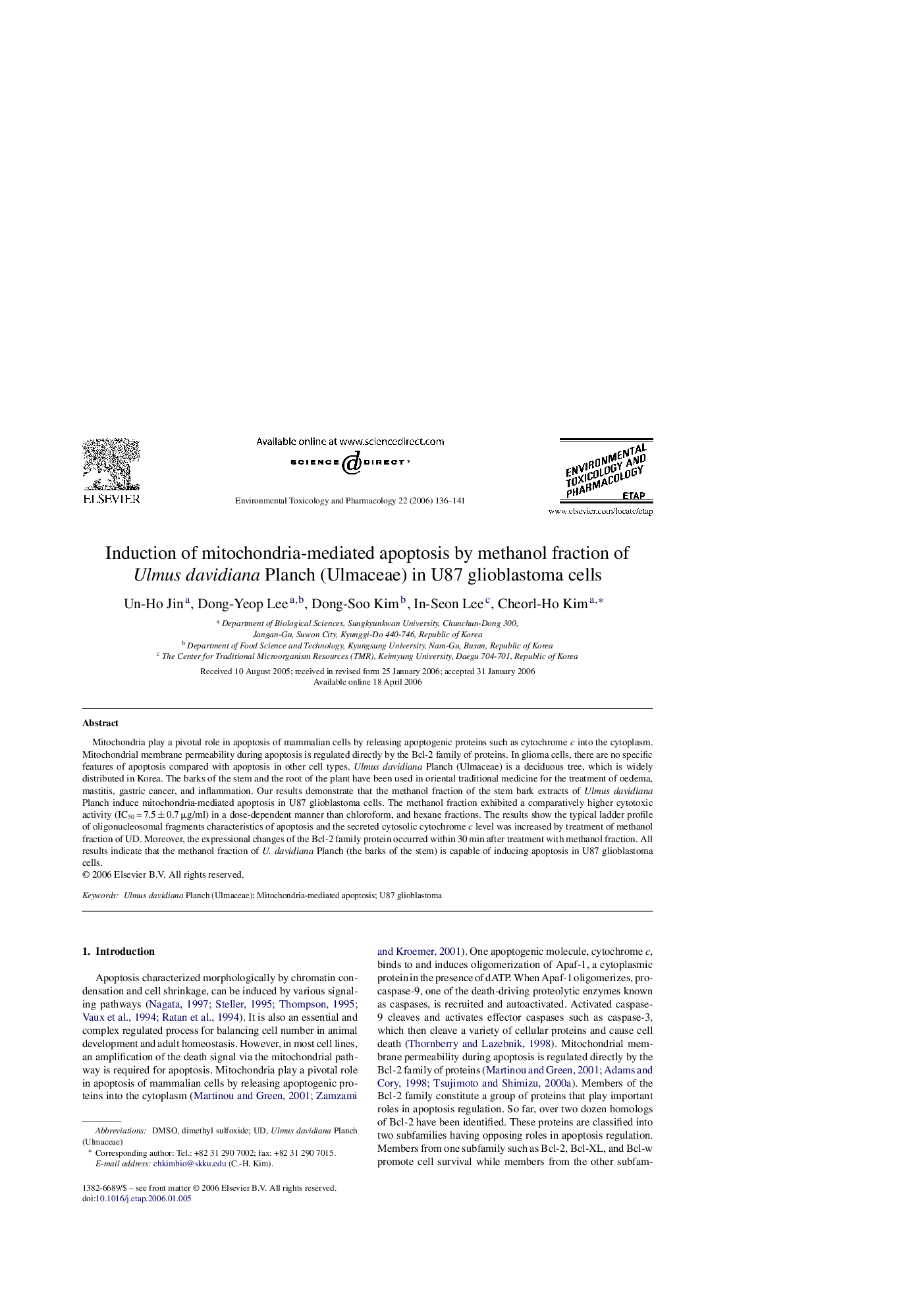| Article ID | Journal | Published Year | Pages | File Type |
|---|---|---|---|---|
| 2584495 | Environmental Toxicology and Pharmacology | 2006 | 6 Pages |
Mitochondria play a pivotal role in apoptosis of mammalian cells by releasing apoptogenic proteins such as cytochrome c into the cytoplasm. Mitochondrial membrane permeability during apoptosis is regulated directly by the Bcl-2 family of proteins. In glioma cells, there are no specific features of apoptosis compared with apoptosis in other cell types. Ulmus davidiana Planch (Ulmaceae) is a deciduous tree, which is widely distributed in Korea. The barks of the stem and the root of the plant have been used in oriental traditional medicine for the treatment of oedema, mastitis, gastric cancer, and inflammation. Our results demonstrate that the methanol fraction of the stem bark extracts of Ulmus davidiana Planch induce mitochondria-mediated apoptosis in U87 glioblastoma cells. The methanol fraction exhibited a comparatively higher cytotoxic activity (IC50 = 7.5 ± 0.7 μg/ml) in a dose-dependent manner than chloroform, and hexane fractions. The results show the typical ladder profile of oligonucleosomal fragments characteristics of apoptosis and the secreted cytosolic cytochrome c level was increased by treatment of methanol fraction of UD. Moreover, the expressional changes of the Bcl-2 family protein occurred within 30 min after treatment with methanol fraction. All results indicate that the methanol fraction of U. davidiana Planch (the barks of the stem) is capable of inducing apoptosis in U87 glioblastoma cells.
